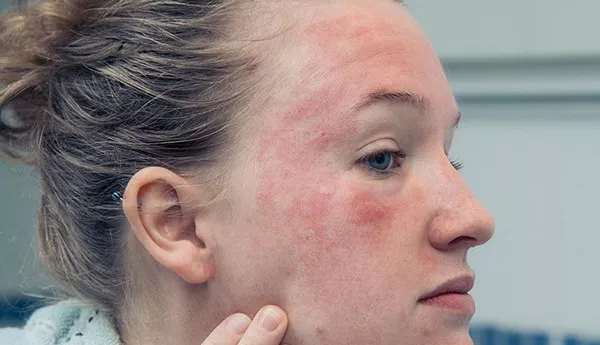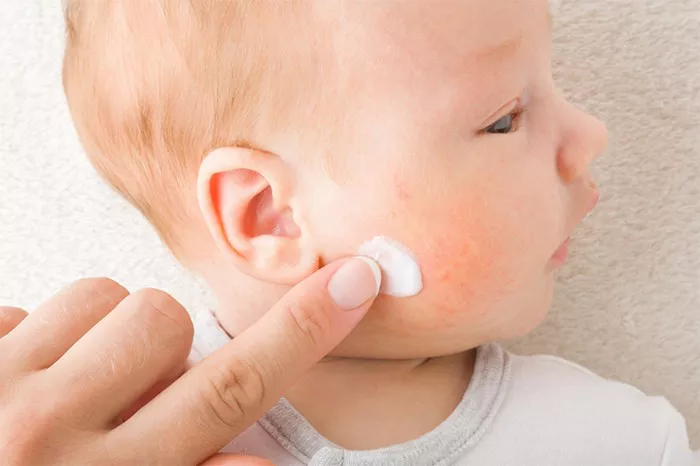Eczema is a common skin condition that can cause discomfort and irritation. When it affects sensitive areas like around the nose, it can be particularly troublesome. The skin around the nose is thin and delicate, making it prone to flare-ups. Fortunately, there are ways to manage and reduce eczema around the nose. In this article, we will explore various approaches, from understanding eczema’s causes to tips for treating and preventing flare-ups.
Understanding Eczema
Eczema, also known as atopic dermatitis, is a condition where the skin becomes inflamed, red, and itchy. It is often associated with dry skin, but it can also appear in patches of inflamed, scaly, or cracked skin. Eczema can be triggered by many factors, such as genetics, environmental influences, and immune system responses.
When eczema appears around the nose, it can be due to various triggers. These triggers can include allergens, irritants like harsh soaps or facial products, and even weather changes. The skin around the nose is often affected because it is more exposed to irritants, such as dirt, dust, and even temperature fluctuations.
Symptoms of Eczema Around Nose
Eczema around the nose can present a range of symptoms. These include:
- Redness and inflammation around the nostrils
- Dry, flaky, or cracked skin
- Itchy or burning sensation
- Crusting or oozing from irritated areas (in more severe cases)
- Swelling around the nose or upper lip
In severe cases, eczema can cause a noticeable rash and discomfort. It can also affect the skin’s ability to heal naturally, leading to a cycle of flare-ups.
Identifying the Causes of Eczema Around the Nose
To effectively treat eczema, it’s important to understand what causes or triggers it. While the exact cause is not fully known, eczema is often linked to genetic and environmental factors. Below are some of the main causes:
Dry Skin: The skin around the nose may be more prone to dryness, leading to eczema flare-ups. Cold air, wind, or air-conditioned environments can strip the skin of moisture, worsening eczema symptoms.
Allergens: Pollen, dust, pet dander, and other environmental allergens can trigger eczema. These allergens can irritate the skin and worsen eczema flare-ups around the nose.
Harsh Skincare Products: Certain facial cleansers, toners, or makeup products may contain chemicals that irritate the skin, leading to eczema. Look for products that are fragrance-free and hypoallergenic to avoid unnecessary irritation.
Weather Conditions: Extreme temperatures, both hot and cold, can affect the skin’s ability to stay hydrated, making eczema flare-ups more likely. The skin around the nose is especially sensitive to these changes.
Stress: Emotional stress can trigger eczema flare-ups by affecting the immune system. Stress may increase the likelihood of an eczema outbreak.
Treatment Options for Eczema Around Nose
Once you have identified the triggers for eczema around your nose, the next step is to take measures to treat the condition. There are several approaches you can use, including medical treatments and lifestyle adjustments.
1. Moisturizing Regularly
One of the most important steps in managing eczema is keeping the skin hydrated. Moisturizers help lock in moisture and prevent dryness, which can lead to flare-ups. When choosing a moisturizer for eczema, look for a product that is fragrance-free and gentle on sensitive skin. Apply the moisturizer immediately after washing your face, while the skin is still damp, to help seal in moisture.
Use a thick, emollient cream: For eczema, thicker creams are often more effective than lotions because they help form a barrier that prevents moisture from escaping.
Opt for natural oils: Coconut oil, sunflower oil, and olive oil are some natural options that can help soothe and hydrate the skin. These oils contain fatty acids that support the skin’s natural moisture barrier.
2. Use a Gentle Cleanser
Harsh soaps and cleansers can strip the skin of its natural oils, making eczema worse. Instead, use a gentle, non-soap cleanser to wash your face. Look for products that are formulated for sensitive skin and free of artificial fragrances or dyes.
Avoid exfoliating products: Exfoliating scrubs or harsh face washes can irritate the skin and worsen eczema. Stick to mild, hydrating cleansers.
Limit face washing: Avoid washing your face too frequently. Once or twice a day is typically enough to keep your skin clean without causing excess dryness.
3. Apply Prescription or Over-the-Counter Creams
When eczema becomes severe, over-the-counter or prescription creams can help control symptoms. Common treatments include corticosteroid creams, which reduce inflammation, and non-steroidal options that help calm the immune response.
Topical corticosteroids: Hydrocortisone is a common over-the-counter steroid cream that can reduce swelling and itching. However, it should only be used sparingly and for short periods, as prolonged use can thin the skin.
Topical calcineurin inhibitors: These are non-steroidal medications that help control inflammation and itching without the side effects of steroids. They may be prescribed if steroids are not effective or suitable for long-term use.
4. Avoid Scratching
Scratching eczema-affected skin can worsen the condition by causing additional irritation and potential infections. If the itch is unbearable, try to resist the urge to scratch. Instead, apply a cold compress or use anti-itch creams to soothe the area.
Keep nails short: Keeping your nails trimmed can help prevent accidental scratching, which can damage the skin and lead to further irritation.
Wear soft cotton gloves at night: If scratching happens during sleep, wearing soft cotton gloves can help protect the skin from scratching and reduce the risk of infection.
5. Manage Triggers and Allergies
To prevent eczema flare-ups, it’s essential to identify and avoid triggers. If allergies are a factor, consider using an antihistamine or other allergy treatments to control symptoms. Other steps to minimize exposure to irritants include:
Change pillowcases regularly: If you are allergic to dust mites or other allergens, wash your pillowcases frequently to reduce exposure.
Use air purifiers: Consider using an air purifier in your home to remove allergens from the environment.
6. Stay Hydrated and Avoid Dehydration
Drinking plenty of water is crucial for maintaining skin hydration. Dehydration can exacerbate eczema, leading to more dryness and irritation. Aim to drink at least 8 glasses of water a day to keep your skin healthy.
7. Control Stress Levels
Stress can trigger eczema flare-ups, so it’s important to find ways to manage stress effectively. Consider practicing relaxation techniques such as deep breathing, meditation, or yoga. Regular physical activity, such as walking or swimming, can also help reduce stress levels and promote overall well-being.
8. Protect Your Skin from Harsh Weather
Cold or dry weather can make eczema worse by stripping moisture from the skin. In the winter, protect the skin around your nose by using a scarf or face mask. In hot weather, make sure to stay hydrated and avoid excessive sun exposure, which can dry out the skin.
9. Consider Natural Remedies
Some people find relief from eczema symptoms using natural remedies. Although these treatments are not scientifically proven, they may provide some comfort. Natural remedies include:
Aloe vera: Aloe vera gel has soothing properties that can help reduce irritation and inflammation.
Oatmeal baths: Colloidal oatmeal can help calm itching and provide relief from irritated skin.
Tea tree oil: Tea tree oil has natural anti-inflammatory properties and may help with eczema symptoms when diluted with a carrier oil.
10. Consult a Dermatologist
If over-the-counter treatments and lifestyle changes are not providing relief, it may be time to consult a dermatologist. A healthcare professional can offer personalized advice and may prescribe stronger medications to help manage the condition.
Preventing Eczema Flare-Ups Around the Nose
Prevention is key to managing eczema and avoiding future flare-ups. Here are some tips to prevent eczema around the nose from returning:
Follow a consistent skincare routine: Cleanse and moisturize regularly to keep the skin hydrated.
Avoid known triggers: Be mindful of environmental factors, skincare products, and allergens that can trigger eczema.
Use mild skincare products: Choose gentle, fragrance-free products that won’t irritate sensitive skin.
Limit exposure to extreme weather conditions: Protect your skin from harsh cold or hot temperatures by covering your face with a scarf or sunscreen.
Maintain a healthy lifestyle: Eat a balanced diet, manage stress, and stay hydrated to support your skin’s health.
Conclusion
Eczema around the nose can be an uncomfortable and persistent condition. By understanding the causes and taking appropriate steps to treat and manage eczema, you can significantly reduce flare-ups and improve the condition of your skin. Whether through moisturizing, using gentle products, or seeking professional medical help, there are many ways to find relief from eczema and keep the skin around your nose healthy and irritation-free.
Related topics:

























